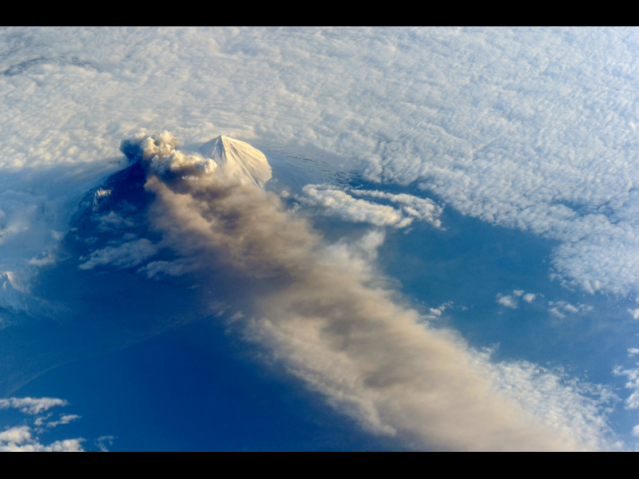
Pavlof Volcano Erupting on May 18, 2013. NASA
I do not like planes because they might fall out of the sky. Cars crash, trains collide, or, as Billy Collins writes in his poem Picnic, Lightning, “the heart, no valentine” could decide without warning “to quit after lunch…” That mortality lurks in all life’s corners is an inconvenient truth. Now we can add fears of climate Armageddon to our list of existential dread, each day a new risk to index. Inertia is a common reaction to this sense of foreboding. Why change habits, spend money on renewable energy, or do anything different to “save the earth” when the planet is already doomed?
Marketing professor Vladas Griskevicius, and his colleagues offer an evolutionary perspective on the problem. They hypothesized that when we feel threatened we use the ancestral strategy of seeking safety in numbers. In the pack we feel less vulnerable, less likely to get eaten when the critter cannot see us because we blend in with the crowd. The group is our haven, our shield.
With this in mind, Griskevicius et al. tested whether fear fostered a desire for fellowship. To set the mood in one study (they did several) the researchers cued a thriller to a terrifying scene from The Shining. Half of the participants watched Jack Nicholson’s character try to kill his wife and son; the rest watched Julie Delpy and Ethan Hawke fall in love in the movie Before Sunrise. Everybody then viewed advertisements for a museum that emphasized either “social proof”– stressing popularity (“Visited by over a Million People Each Year”), “scarcity” – stressing rarity (“Stand Out from the Crowd”), or neither appeal. Just as predicted, those who found the movie scene scary were more likely to be swayed by social proof messages because the language stressed affiliation.
It seems that potent persuasion is steeped in a blend of social context and emotion. When forecasts of climate catastrophe frighten, messages such as “all your neighbors are putting up solar panels” may be more convincing then “get your solar panels before it’s too late and they are all gone.” Inspiring climate friendly action begs a nod to our companionable nature, an ear for fear, and an understanding of the synergy between the two.
Griskevicius, V., Goldstein, N.J. Mortensen, C. R., . Sundie, J. M., Cialdini, R.B., & Kenrick, D. T. (2009) Fear and Loving in Las Vegas: Evolution, Emotion, and Persuasion. Journal of Marketing Research, 46 (3), 384-395.


